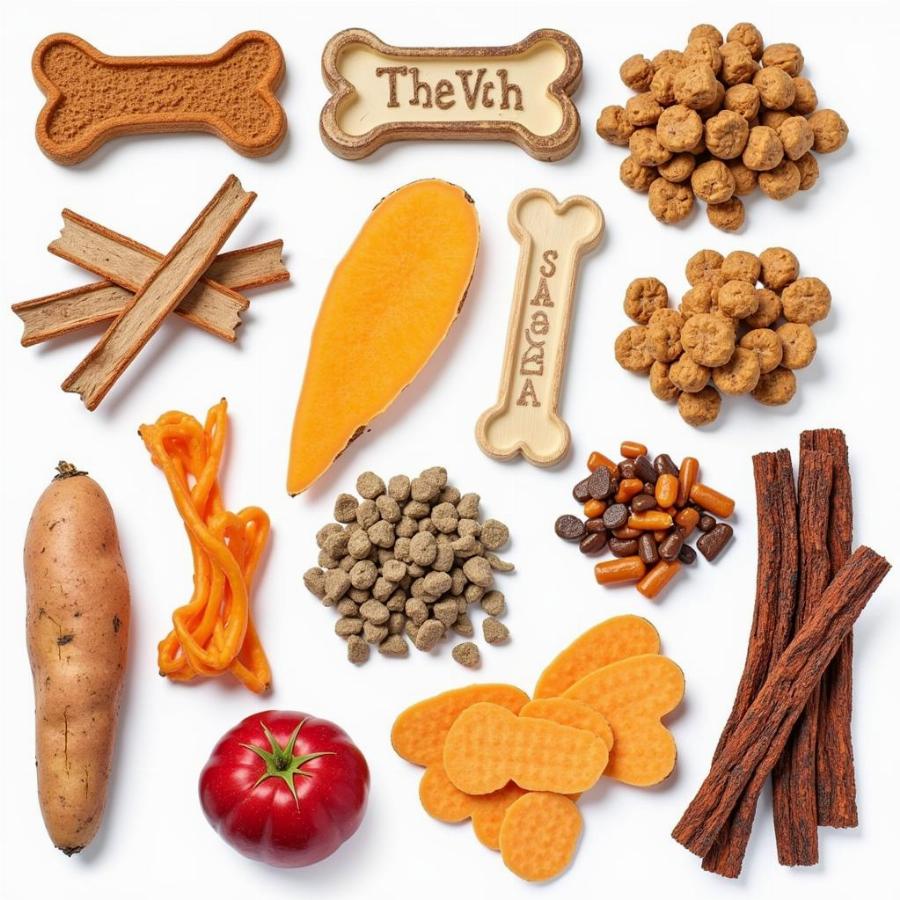When a dog owner searches for “hot dog blow up”, they are likely not searching for party decorations. This concerning phrase usually indicates a misunderstanding of canine anatomy and potentially dangerous feeding practices. While the image of a hot dog expanding inside a dog might seem humorous, the reality can be life-threatening. This article will delve into why feeding your dog whole or large pieces of hot dogs is strongly discouraged and explore safer alternatives to keep your furry friend happy and healthy.
Dogs are not designed to digest large chunks of processed food like hot dogs. The combination of high sodium content, fat, and preservatives can put a strain on their digestive system. A hot dog, when ingested in large pieces, can become lodged in the esophagus or intestines, leading to a serious condition called a blockage.
The Anatomy of a Dog’s Digestive System and Why “Hot Dog Blow Up” is a Problem
Let’s understand why “hot dog blow up” is a misnomer and a dangerous situation. Unlike a balloon, a hot dog doesn’t actually “blow up” inside a dog. Instead, it swells when it comes into contact with fluids in the stomach and intestines. This expansion can cause:
- Esophageal Obstruction: A hot dog can easily get stuck in a dog’s esophagus, especially in smaller breeds or those who gulp their food.
- Gastrointestinal Blockage: In the intestines, a swollen hot dog can obstruct the passage of food and fluids, leading to severe complications.
Signs Your Dog May Have a Hot Dog or Food Obstruction
If you suspect your dog has ingested a large amount of hot dog or is showing any of these symptoms, seek immediate veterinary attention:
- Vomiting: One of the first signs of a blockage.
- Loss of Appetite: Your dog may refuse even their favorite treats.
- Lethargy: They may seem unusually tired and reluctant to move.
- Abdominal Pain: Whining, whimpering, or a hunched posture can indicate pain.
- Constipation or Straining: Inability to pass stool is a red flag.
Safe and Healthy Alternatives to Whole Hot Dogs
We all love to treat our dogs, but there are far safer ways to include them in your barbecue fun:
- Small Bites: Cut hot dogs into tiny, bite-sized pieces to reduce choking and blockage risks.
- Cooked Plain Meat: Opt for small pieces of grilled chicken or beef without any seasonings.
- Dog-Specific Treats: There are countless commercially available treats designed for dogs’ digestive systems.
- Fruits and Veggies: Many dogs enjoy carrot sticks, apple slices (without seeds!), or blueberries as healthy treats.
 Healthy Dog Treats and Chews
Healthy Dog Treats and Chews
Expert Insights on Canine Nutrition
“Many pet owners don’t realize the potential harm in feeding seemingly harmless foods like hot dogs,” says Dr. Emily Carter, a veterinarian specializing in canine nutrition. “It’s crucial to understand that a dog’s digestive system is different from ours, and what we might consider a tasty snack can be a recipe for disaster for our furry companions.”
Choosing the Right Diet for Your Dog
Feeding your dog a balanced and appropriate diet is essential for their overall health and well-being. Here are some tips:
- Consult Your Veterinarian: They can recommend the best food options based on your dog’s breed, age, size, and activity level.
- Read Food Labels: Look for high-quality ingredients and avoid foods with artificial colors, flavors, and preservatives.
- Monitor Treats: Treats should make up no more than 10% of your dog’s daily caloric intake.
Conclusion
While the term “hot dog blow up” might sound amusing, the implications are anything but. By understanding the risks associated with feeding your dog large pieces of hot dogs and opting for safer alternatives, you can help keep your furry friend safe, healthy, and happy for years to come.
Remember, a well-informed dog owner is a responsible dog owner.
Have other questions about canine health or need advice on dog care? Contact us at [email protected] for expert answers and guidance.
Beaut Dogs is your go-to source for everything related to dog care. We’re dedicated to providing dog owners with reliable information and resources to help you give your furry companions the best possible life.